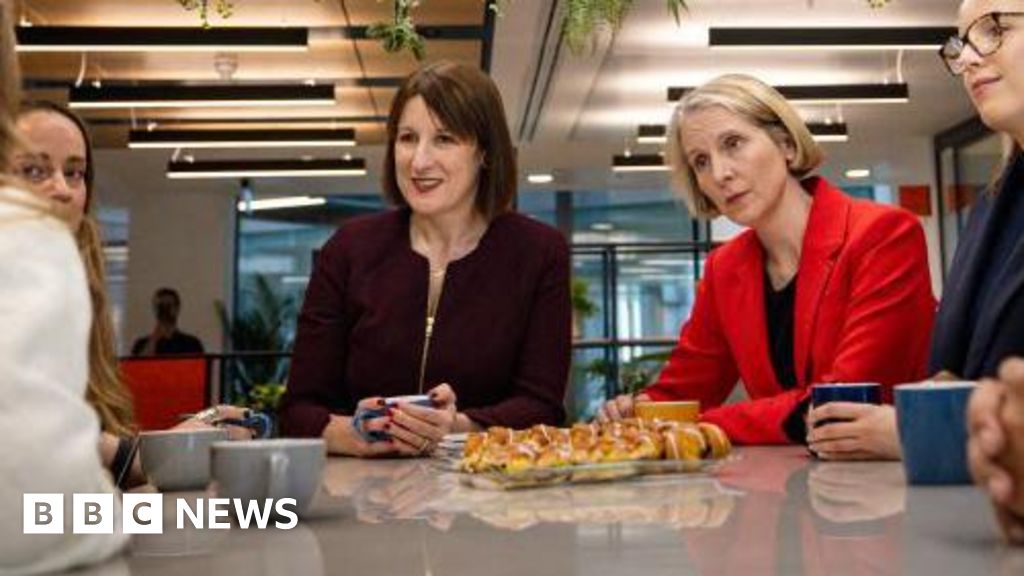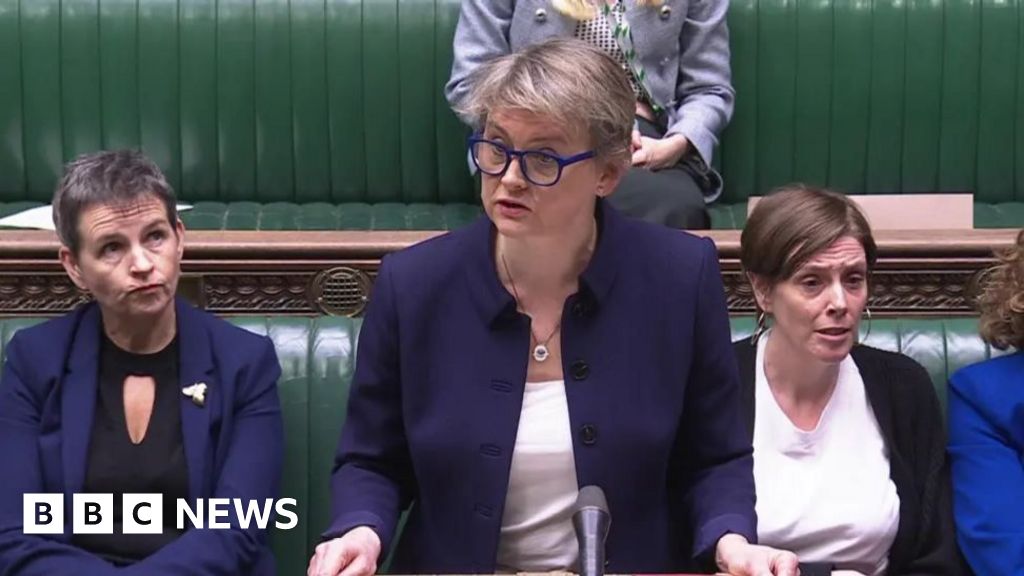ARTICLE AD BOX
By Reality Check team
BBC News
Boris Johnson has given his first in-person speech to the Conservative Party conference since the Covid pandemic struck.
Promising "radical and optimistic conservatism" he made claims about the economy, wages, and housing - and repeated some familiar pledges.
We've looked at some of them.
'We now have the fastest growth in the G7'
The G7 is a group of big economies.
UK GDP, a measure of everything produced in the country, grew 4.8% between April and June, compared with the first three months of the year, and he's right - that is more than any other G7 country.
But the UK economy was hit particularly hard by the pandemic, which means it takes more growth to get back to where we started.
If you take a longer view, the picture looks less rosy. If you compare GDP between April and June 2021 with the last three months of 2019, before the pandemic hit, the UK had the joint-fifth best growth in the G7, equal with Germany, and with only Italy doing worse.
'48 new hospitals, 50,000 more nurses'
It's not clear what constitutes a "new" hospital, as the pledge Mr Johnson is talking about includes refurbishments of existing hospitals. The plan is for them to be built by 2030, so this is still a work in progress.
So far, construction has begun at six sites. One is a new cancer hospital in Bath. The other five were hospital builds planned under pre-existing schemes (over the last decade) and include building work that stopped after the collapse of the construction firm Carillion.
The Conservatives promised 50,000 more nurses for England by March 2025.
The latest figures show there were 310,251 full-time equivalent NHS nurses and health visitors in June 2021. While that is up 14,158 since December 2019, it still leaves 35,842 full-time equivalent posts to fill over the next three-and-a-half years.
You can read more about how the Conservatives are doing with meeting some of their manifesto pledges here.
Image source, Getty Images
'We have done 68 free trade deals, and that great free trade deal with our friends in the EU'
He's right that deals have been done with 68 countries plus the EU, but there's a big caveat. Nearly all of these deals - 63 of them in fact - are "rollover" deals. That means they copied the terms of deals the UK already had when it was an EU member, rather than creating any new benefits.
Deals with Japan and with Norway, Iceland and Liechtenstein are slightly different than the EU deals they replace, and the UK has also agreed in principle a free trade deal with Australia, which the EU has not.
But by far the most important agreement - the one with the EU itself - creates additional barriers to trade which were not there when the UK was part of the EU single market, particularly for services.
And the big Brexit hope of an early free trade deal with the United States has not been fulfilled.
'In Ribble Valley... they live seven years longer than the people of Blackpool only 33 miles away'
Mr Johnson gave this example while talking about the need to "level up".
The Office for National Statistics produces life expectancy data at a regional and local level.
Its latest figures show that that life expectancy at birth for males in Blackpool is 74. That compares with 81 in Ribble Valley - so on this measure, Mr Johnson is right.
For females, life expectancy at birth is 79 in Blackpool and 84 in Ribble Valley.
'We have... built more homes than at any time in the last 30 years'
The prime minister has made this claim before - we checked it in April.
The figure he has used in the past is the number of net additional dwellings in England, which was 243,770 between April 2019 and March 2020. That was a record for the last 30 years.
But that's not just homes built - net additional dwellings is a broad definition reflecting new houses completed, plus gains or losses from conversions, changes of use and demolitions, and even some caravans and houseboats.
It should also be said that very few of the new homes are being built by the government - 82% of the completions were from private enterprise, 17% from housing associations and 1% from local authorities.
Other indicators suggest that the figures for 2020-21 will have been considerably reduced by the pandemic when they are released in November.
'Wages are going up faster than before the pandemic began'
In the three months to March 2020, the average salary was worth 1% more than it had been a year before.
The most recent figures, for April to July 2021, estimate that the average salary was worth 4.5% more than a year before.
Since average salaries dipped in the first few months of the pandemic, comparing this July with last July looks like a record rise - but more because of lows back then than highs right now.
Work and Pensions Secretary Therese Coffey said the figures had been "skewed and distorted" and described recent average earnings rises as a "statistical anomaly".
And as a result, the government decided, for this year, to break their manifesto pledge to increase pensions by at least as much as wage growth.
While the most recent figures exaggerate the growth in wages, Office for National Statistics analysis that tried to strip out the distortions suggests that Mr Johnson was probably correct.
Prices have been rising in recent months, which is likely to eat into wage increases, while many in the public sector have had their pay frozen.

 3 years ago
100
3 years ago
100








 English (US) ·
English (US) ·